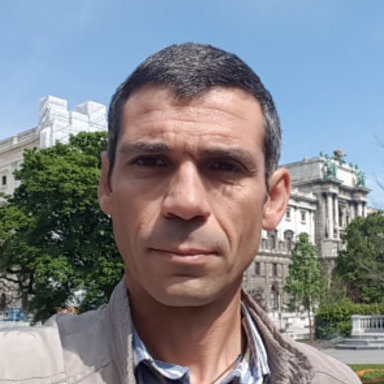HICSS - 52 Digital Government Track
52nd Hawaii International Conference on System Sciences
January 8-11, 2019 - Grand Wailea, Maui, HI, USA
Overview
Minitracks
Tutorials and Workshops
Other Links
Smart and Connected Cities and Communities



Minitrack Description
Communities around the world are entering a new era of transformation in which residents and their surrounding environments are increasingly connected through rapidly-changing intelligent technologies or smart technologies. This transformation, which has become a top priority for city governments and communities, offers great promise for improved wellbeing and prosperity but, also, poses significant challenges at the complex intersection of technology and society.
Although literature is rich in references to smart cities and communities, this is still a developing and fuzzy concept that is not being consistently used. Despite the different definitions and studies, there seems to be agreement on the fact that a smart community is a multidimensional and multifaceted concept that goes beyond the mere use of technology and infrastructure. Although technology is a necessary condition to become smart, it is not the only one. City administration and community management, information integration, data quality, privacy and security, institutional arrangements, and citizen participation are just some of the issues that need greater attention to make a community smarter today and in the near future. In addition, the literature on smart cities and communities is fragmented, particularly in terms of the strategies that different cities and communities follow in order to become smarter. There is no one route to becoming smart and different territories have adopted different approaches that reflect their particular circumstances.
This mini track aims at exploring these issues, paying particular attention to the challenges of smart cities and smart communities as well as to the impact of these initiatives. It also aims at focusing on the orchestrated interplay and balance of smart governance practices, smart public administration, smart communities, smart resources and talent leverage in urban, rural, and regional spaces facilitated by novel uses of ICT and other technologies.
As a result, areas of focus and interest to this mini-track include, but are not limited, to the following topics
- Smart governance as the foundation to creating smart urban and regional spaces (elements, prerequisites, and principles of smart governance)
- Smart government (focal areas, current practices, cases, and potential pitfalls)
- Smart partnerships (triple/quadruple helix, public-private partnerships, and citizen participation)
- Smart cities and regions (cases, rankings, comparisons, and critical success factors)
- Collective intelligence for smart cities and communities
- Emerging technologies in smart communities (big data, open data, social media and networks, etc)
- Internet of Things in smart communities (infrastructure, transportation, education, governance, environment, health care, safety, security, and energy)
- Smart grids
- Smart environment and transportation (carbonless and clean individual and public mobility)
- Smart devices and their novel use in public management
- Smart (technology-facilitated) practices such as payment systems, identification systems, etc.
- New cybersecurity risks and vulnerabilities in smart technologies
- SMART as a public-sector planning and management principle (Specific, Measurable, Action-oriented, Results-based, and Time-bound)
- Smart university and education
- Quality of life issues in smart cities and communities
- Urban-rural gaps in smart communities
More information on the minitrack chairs:
Mila Gascó holds a MBA and a Ph. D. in public policy evaluation (Award Enric Prat de la Riba granted to the best Ph. D. thesis on public management and administration, given by the School of Public Administration of Catalonia in Barcelona, Spain). Nowadays, she is the Associate Research Director of the Center for Technology in Government as well as a Research Associate Professor at the Rockefeller College of Public Affairs and Policy, both at the University at Albany - SUNY. Before joining SUNY, Dr. Gascó served as a senior researcher at the Institute of Governance and Public Management (currently known as ESADEgov - Center for Public Governance) and the Institute of Innovation and Knowledge Management, both at ESADE Business & Law School in Spain. Previous to that, she was a senior analyst at the International Institute on Governance of Catalonia and a professor in the Rovira Virgili University and the Pompeu Fabra University, both in Spain. Mila Gascó has considerable consulting experience on the information and knowledge society as well. In this respect, she has worked for a wide variety of organizations such as the United Nations Development Program, the Mayor's Office in Valencia (Venezuela), the Spanish Agency for International Development Cooperation, the City Council and the Provincial Council of Barcelona, the International Institute for Democracy and Electoral Assistance, the Latin American Centre on Management for Development (for whom she co-developed the Ibero-American Interoperability Framework), the World E-Governments Organization of Cities and Local Governments (she was the leading judge for the WeGo Awards), the Inter-American Development Bank, or Google. Her areas of research are mainly related to information and technology in government and, among other, they include electronic and open government, e-governance, public sector innovation, smart cities, and public policy evaluation.
Manuel Pedro Rodríguez Bolívar is full Professor at the University of Granada. His areas of research are mainly related to information and technology in government and, among other, they include electronic and open government, e-governance, public sector innovation, smart cities, and public policy evaluation. He has authored numerous articles in international journals, among them we can highlight Public Money & Management, Government Information Quarterly, Public Administration and Development, Online Information Review, International Review of Administrative Sciences, American Review of Public Administration, ABACUS, Academia. Revista Latinoamericana de Administración, International Public Management Journal, Environmental Education Research, INNOVAR, Transylvanian Review of Administrative Sciences, Electronic Commerce Research and Administration & Society. He has been also the author of several book chapters published in prestigious international publishers such as Kluwer Academic Publishers, Springer, Routledge, Palgrave, Taylor and Francis and IGI Global, and is author of full-length books published by the Ministry of Economy and Finance in Spain. In addition, he is Editor in Chief of IJPADA and member of the Editorial Board of Government Information Quarterly. He is also editor of other international journals and books.
Taewoo Nam is an Associate Professor in the Department of Public Administration and Graduate School of Governance at Sungkyunkwan University, Korea. He is also a Research Fellow at the Center for Technology in Government, University at Albany, State University of New York. As an advisor in the performance evaluation board of the Korean national government, he helps the government evaluate the performance of national reform initiatives and programs. His research interests comprise government innovation, open government, citizen participation, and digital government. Recent publications appear in various journals such as Government Information Quarterly, Telematics and Informatics, Social Science Computer Review, Computers in Human Behavior, International Review of Administrative Sciences, International Review of Public Administration, International Journal of Public Administration, Journal of Urban Technology, Journal of Information Technology and Politics, and Information Polity.
Co-Chairs
Mila Gascó
(Primary Contact)
Center for Technology in Government
University at Albany, SUNY
187 Wolf Road, Suite 301
Albany, NY 12205, USA
Phone: +1-518-442-3892
Email: mgasco@ctg.albany.edu
Manuel Pedro Rodríguez Bolívar
Faculty of Business Science
Department of Accounting and Finance
Campus Universuitario de Cartuja
University of Granada
18071, Granada Spain
Email: manuelp@ugr.es
Taewoo Nam
Department of Public Administration and Graduate School of Governance
Sungkyunkwan University, Korea
Email: namtaewoo@skku.edu
